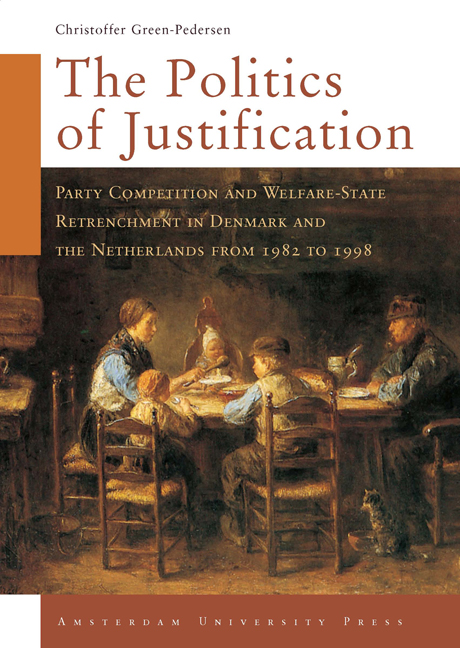 The Politics of Justification
The Politics of Justification Published online by Cambridge University Press: 15 January 2021
The aim of this chapter is to present the research strategy and research design of the study. As will be further explained below, the overall research strategy of this study is comparable case studies. The chapter therefore starts with a discussion of the choice of cases. This includes both the choice of countries, social-security programmes, and time period. The chapter then goes on to discuss the definition and measurement of the dependent variable, namely retrenchment. The overall aim of the empirical parts of the study is to determine whether or not there is empirical support for the theoretical framework developed in chapter 3. Following King, Keohane & Verba (1994), the best way to investigate the explanatory power of a framework is to derive as many empirically observable implications or empirical hypotheses from it as possible and to see whether these match the actual empirical developments. Therefore, this chapter ends by developing 6 hypotheses about variation in retrenchment across the selected cases.
Denmark and the Netherlands – a most similar systems design
Starting with the country level, the study is based on a most similar systems design (Lijphart 1971; Frendreis 1983). This implies that the two ideal cases for this study would be two countries representing the two different modes of party competition discussed in chapter 3, while at the same time being similar in all other relevant respects. The relevant respects with regard to this study are the institutional and economic factors discussed in chapter 2. Two such ideal countries do not exist. However, as will be argued below, Denmark and the Netherlands are fairly close and have been investigated.
As will be further argued in chapters 6 and 7, the two countries exemplify the two different modes of party competition. Denmark represents the bloc type of party competition. It is either governed by social democratic governments, often including one or several small centre parties, or right-wing governments, mostly involving both the two major right-wing parties, the Conservatives and the Liberals (Damgaard 1992). The Netherlands represents the pivotal type of party competition. The pivotal party is the Christian Democratic Party or cda.
To save this book to your Kindle, first ensure [email protected] is added to your Approved Personal Document E-mail List under your Personal Document Settings on the Manage Your Content and Devices page of your Amazon account. Then enter the ‘name’ part of your Kindle email address below. Find out more about saving to your Kindle.
Note you can select to save to either the @free.kindle.com or @kindle.com variations. ‘@free.kindle.com’ emails are free but can only be saved to your device when it is connected to wi-fi. ‘@kindle.com’ emails can be delivered even when you are not connected to wi-fi, but note that service fees apply.
Find out more about the Kindle Personal Document Service.
To save content items to your account, please confirm that you agree to abide by our usage policies. If this is the first time you use this feature, you will be asked to authorise Cambridge Core to connect with your account. Find out more about saving content to Dropbox.
To save content items to your account, please confirm that you agree to abide by our usage policies. If this is the first time you use this feature, you will be asked to authorise Cambridge Core to connect with your account. Find out more about saving content to Google Drive.